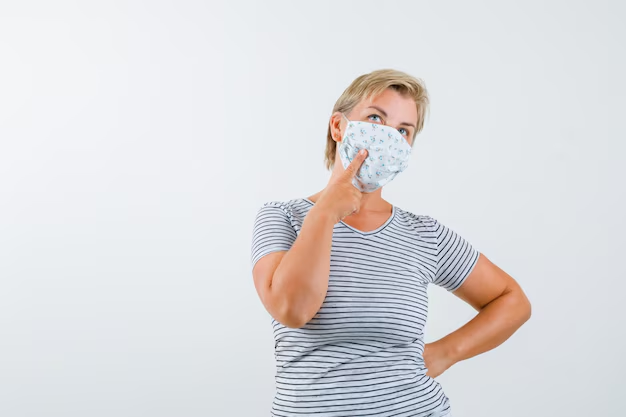Understanding Pneumonia: Recognizing Symptoms and Staying Informed
When it comes to illnesses that can affect our lungs, pneumonia often makes the list as one of the more serious conditions. Defined as an infection that inflames the air sacs in one or both lungs, pneumonia can be caused by a variety of infectious agents, including bacteria, viruses, and fungi. So, what are the symptoms of pneumonia, and how can you recognize them? Let’s delve into these questions while exploring related aspects that encompass this significant health topic.
Recognizing the Symptoms of Pneumonia
The symptoms of pneumonia can vary in severity from mild to life-threatening and can present differently based on the cause of the infection, age of the patient, and their overall health. Here are the hallmark symptoms:
Common Symptoms
Coughing: Persistent coughing that may produce mucus (sputum) that is green, yellow, or even tinged with blood.
Fever: A high fever can be a telltale sign, sometimes accompanied by chills.
Shortness of Breath: Difficulty in breathing or feeling breathless during regular activities.
Chest Pain: Often described as a sharp or stabbing pain that intensifies with deep breathing or coughing.
Fatigue and Weakness: A general sense of being unwell that makes one feel excessively tired.
Additional Symptoms
Sweating and Shivering: Often linked with fevers, this can be a result of the body attempting to fight the infection.
Headache: Some individuals may experience headaches alongside other symptoms.
Loss of Appetite and Weight Loss: Reduced desire to eat and subsequent weight loss may occur in prolonged cases.
Symptoms in Specific Populations
In Children
Children may present symptoms slightly differently. Here are key signs to watch for:
- Faster or Difficult Breathing: Rapid breathing may sometimes be mistaken for flu or a cold.
- Cyanosis: A bluish tint to lips or fingernails, indicating a lack of oxygen.
- Fussiness or Lethargy: Particularly in infants, unusual crankiness or lack of energy can signal pneumonia.
In Older Adults
Older adults might not exhibit typical symptoms such as fever. Instead, they might experience:
- Confusion or changes in mental awareness.
- Lower-than-normal body temperature.
Pneumonia vs. Other Respiratory Infections
Pneumonia is often confused with other respiratory conditions like bronchitis or the flu due to overlapping symptoms. Here’s how you can discern them:
Common Distinctions
Bronchitis typically involves a cough with or without mucus, but the chest pain and breathing difficulty are less severe.
Influenza (Flu) symptoms include high fever, body aches, and fatigue, but these generally improve in a few days without causing the chest pain or mucus production associated with pneumonia.
Understanding these differences helps facilitate better conversations with healthcare professionals when symptoms arise.
Causes and Risk Factors
What Causes Pneumonia?
Pneumonia can result from various pathogens:
Bacteria: The most common cause of bacterial pneumonia is the bacterium Streptococcus pneumoniae.
Viruses: Viruses that infect your respiratory tract may result in viral pneumonia. The influenza virus is a prime example.
Fungi: Environmental fungi can lead to fungal pneumonia, although this is relatively rare compared to other forms.
Who Is at Risk?
Certain groups are at increased risk of pneumonia:
Infants and Young Children: Due to underdeveloped immune systems.
Elderly: With naturally weaker immune systems.
Individuals with Chronic Illnesses: Conditions like asthma, diabetes, or heart disease increase susceptibility.
Smokers: Smoking damages lung defenses, making infections more likely.
Prevention Strategies
Although pneumonia can be serious, several preventive measures can reduce the risk:
Vaccination
Pneumococcal Vaccines: Help protect against the most common bacterial cause.
Flu Vaccines: Since flu can lead to pneumonia, it’s advisable to get vaccinated annually.
Healthy Practices
Hand Hygiene: Regular washing of hands can prevent many infections.
Don't Smoke: Avoid smoking and exposure to secondhand smoke.
Healthy Lifestyle: Adequate sleep, balanced diet, and exercise support immune function.
Navigating Treatment Options
Recognizing when to seek medical attention is crucial. While this article does not provide medical advice, here are some common options that healthcare providers consider:
Antibiotics: Effective against bacterial pneumonia.
Antiviral Medications: May be prescribed for viral pneumonia.
Supportive Care: Oxygen therapy and fluids to maintain hydration and oxygen levels.
Importance of Early Detection
Detecting pneumonia early can significantly impact recovery:
Prompt Medical Consultation: If you or someone you care for exhibits symptoms, early discussion with a healthcare provider can lead to timely treatment.
Awareness of Symptoms: Educating yourself about the symptoms and differences from other conditions can aid in fast identification.
This comprehensive approach enables individuals to take informed actions promptly.
📝 Key Takeaways
- Identifying Pneumonia: Look for symptoms like a persistent cough, chest pain, fever, and shortness of breath.
- Population-Specific Signs: Children and older adults may show different symptoms.
- Prevention Matters: Vaccination and healthy habits are effective preventive measures against pneumonia.
- Early Action: Recognizing symptoms early and seeking medical guidance leads to better outcomes.
By staying informed, you can effectively navigate the complexities of pneumonia and take proactive steps for health and wellness. 🌟

Related Articles
- a Typical Pneumonia
- Can a Cold Turn Into Pneumonia
- Can a Sinus Infection Turn Into Pneumonia
- Can Amoxicillin Cure Pneumonia
- Can Amoxicillin Treat Pneumonia
- Can Baby Oil Cause Pneumonia
- Can Bronchitis Turn Into Pneumonia
- Can Covid Turn Into Pneumonia
- Can Doxycycline Treat Pneumonia
- Can Flu Turn Into Pneumonia
